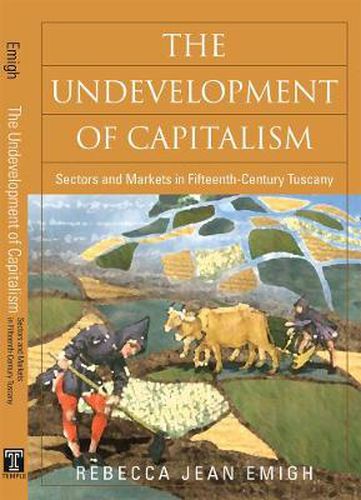Readings Newsletter
Become a Readings Member to make your shopping experience even easier.
Sign in or sign up for free!
You’re not far away from qualifying for FREE standard shipping within Australia
You’ve qualified for FREE standard shipping within Australia
The cart is loading…






In The Undevelopment of Capitalism, Emigh argues that the expansion of the Florentine economic market in the fifteenth century helped to undo the development of markets of other economies–especially the rural economy of Tuscany. As this highly developed urban market penetrated rural regions, it actually erased rural market institutions that rural inhabitants had used to organize agricultural production and family life. Thus, an advanced economy at the time of the late Middle Ages and early Renaissance undeveloped over time. The economic development of this region in Italy was delayed as it failed to keep pace with the rest of Europe. Using a negative case methodology to show how urban and rural markets change, Emigh employs methods of historical sociology and sectoral theories to examine how markets can prosper and suffer at the same time. She shows how sectoral relations are crucial to transitions to capitalism and how capitalist development can also contract markets.
$9.00 standard shipping within Australia
FREE standard shipping within Australia for orders over $100.00
Express & International shipping calculated at checkout
In The Undevelopment of Capitalism, Emigh argues that the expansion of the Florentine economic market in the fifteenth century helped to undo the development of markets of other economies–especially the rural economy of Tuscany. As this highly developed urban market penetrated rural regions, it actually erased rural market institutions that rural inhabitants had used to organize agricultural production and family life. Thus, an advanced economy at the time of the late Middle Ages and early Renaissance undeveloped over time. The economic development of this region in Italy was delayed as it failed to keep pace with the rest of Europe. Using a negative case methodology to show how urban and rural markets change, Emigh employs methods of historical sociology and sectoral theories to examine how markets can prosper and suffer at the same time. She shows how sectoral relations are crucial to transitions to capitalism and how capitalist development can also contract markets.